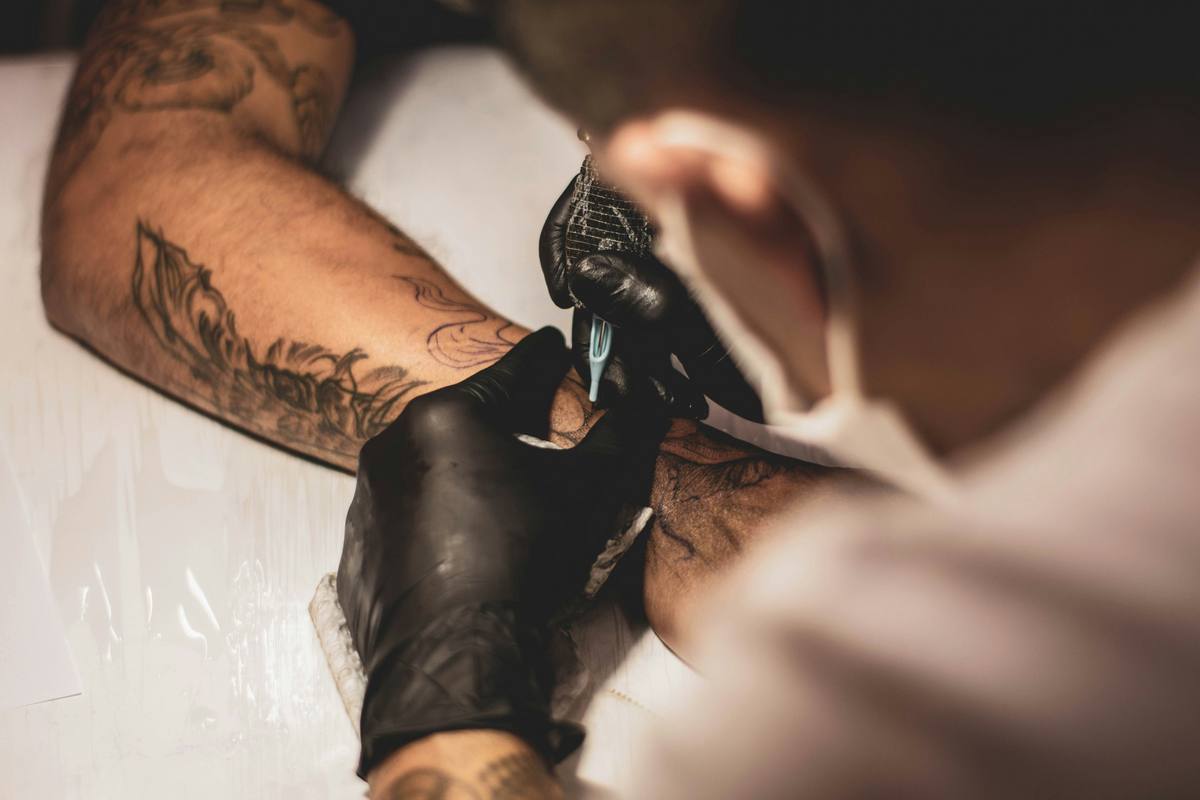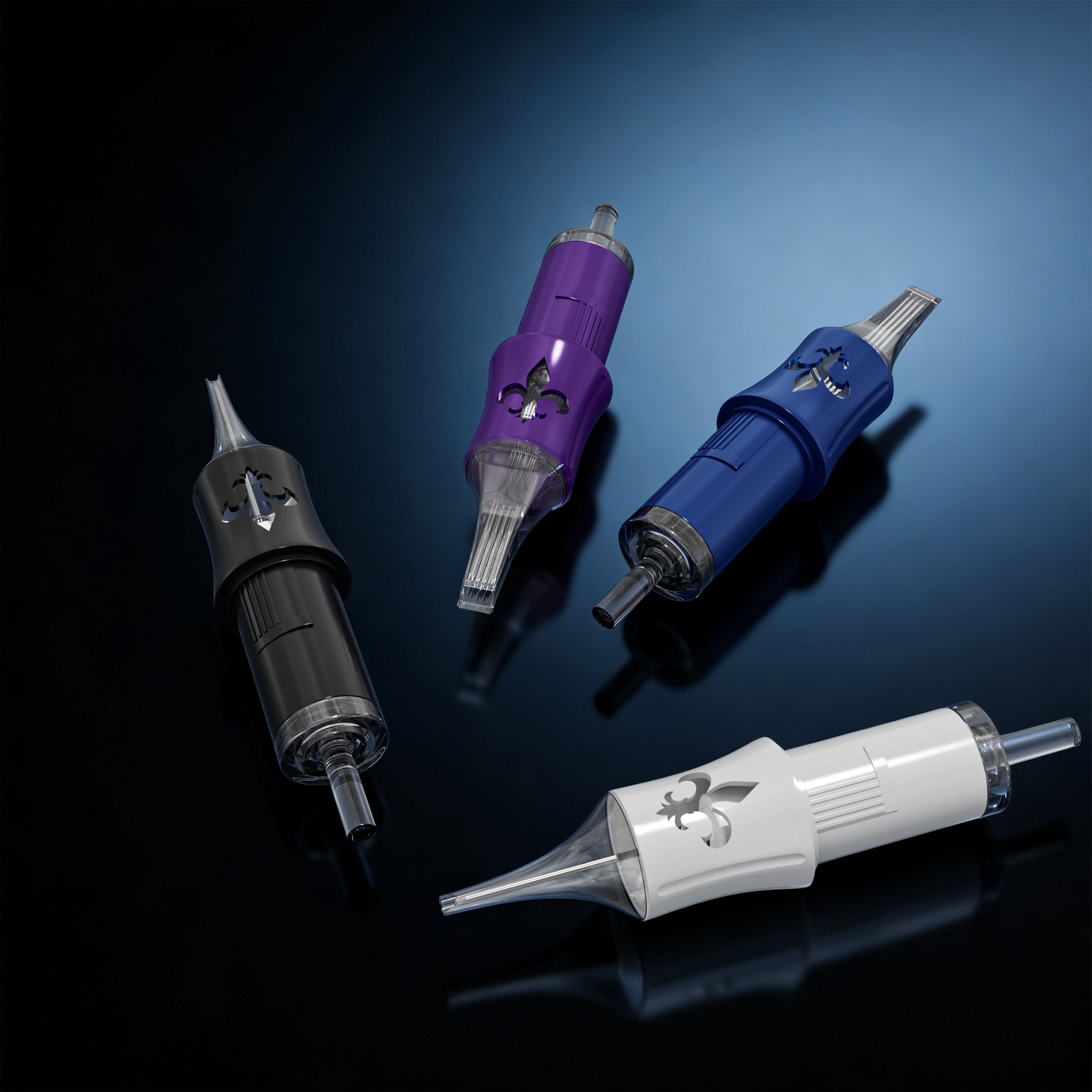Tattooing has evolved far beyond its roots as a counterculture art form. Today, tattoo studios are becoming sophisticated creative hubs where art, technology, and health standards intersect. For artists aiming to stay ahead, understanding emerging trends in tattoo culture, equipment, and studio management is essential. This blog explores the key developments every modern tattoo artist should know to thrive in the next decade.
1. Technology Integration in Tattoo Studios
The rise of technology has revolutionized tattooing. From digital design software to advanced tattoo machines, technology is enabling artists to achieve unprecedented precision and efficiency.
a. Digital Design Tools
Modern tattoo studios increasingly rely on digital tools for designing tattoos. Tablets and design software allow artists to create, modify, and preview designs before committing ink to skin. Artists can easily experiment with color palettes, line thickness, and placement, offering clients a more immersive experience. Platforms like Procreate and Adobe Illustrator have become staples in contemporary tattoo design workflows.
b. Advanced Tattoo Machines
The evolution of tattoo machines is reshaping the studio environment. Rotary tattoo machines, known for their quiet operation and versatility, are replacing traditional coil machines in many studios. These machines reduce hand fatigue and provide more consistent needle movement, making fine line tattoos and intricate designs more accessible. Investing in a high-quality tattoo machine can enhance your precision and client satisfaction.
2. Sustainability and Eco-Friendly Practices
Environmental awareness is influencing the tattoo industry. Studios are adopting eco-friendly practices to reduce waste and promote sustainability.
a. Recyclable Materials and Sterilization
Single-use tattoo needles and tubes remain standard for hygiene, but studios are exploring biodegradable alternatives for packaging and consumables. Proper disposal and sterilization practices not only ensure compliance with regulations but also appeal to environmentally conscious clients.
b. Organic and Vegan Tattoo Ink
Tattoo enthusiasts increasingly demand non-toxic, vegan-friendly inks. Brands are developing tattoo ink that is free from heavy metals and animal derivatives, reducing allergic reactions and promoting long-term skin health. Using eco-conscious products can set a studio apart in a competitive market.
3. Personalized Client Experience
Modern tattoo clients expect more than just an inked design—they seek a personalized experience.
a. Pre-Session Consultations
Artists now conduct detailed consultations, discussing design, placement, and aftercare. This tailored approach improves client satisfaction and reduces the likelihood of tattoo regret. Integrating digital previews helps clients visualize the final result, ensuring confidence in their choice.
b. Enhanced Tattoo Aftercare
Effective tattoo aftercare is vital for optimal healing and long-term ink retention. Studios are offering aftercare packages including balms, ointments, and detailed instructions. Educating clients about proper care not only protects your work but also builds trust and loyalty.
4. Hygiene and Safety Standards
The COVID-19 pandemic heightened awareness of hygiene, making cleanliness an essential trend in tattoo studios.
a. Sterile Environment
Maintaining a sterile workspace with disinfected surfaces and equipment is non-negotiable. Modern studios invest in autoclaves and sterilization cabinets to ensure reusable tools meet strict hygiene standards.
b. Compliance with Regulations
Understanding local and international health regulations is critical. Studios that adhere to safety guidelines demonstrate professionalism and protect both artists and clients. Training staff on sterilization and infection control protocols is increasingly expected.
5. Hybrid Studio Models
Tattoo studios are no longer confined to physical locations. Hybrid models are emerging, combining traditional studios with online services.
a. Virtual Consultations
Remote consultations via video calls allow clients to explore design ideas without visiting in person. This expands the studio’s reach and enables artists to work with clients globally.
b. Online Booking and E-Commerce
Integrated booking systems and e-commerce platforms allow clients to schedule sessions, purchase aftercare products, or order tattoo kits directly from the studio’s website. Streamlined digital experiences enhance client convenience and operational efficiency.
6. Education and Community Building
Successful studios are becoming educational hubs, fostering community engagement.
a. Tattoo Workshops
Workshops and masterclasses teach aspiring artists about machine handling, shading techniques, and tattoo needles usage. Educating others elevates the profession and positions your studio as an industry leader.
b. Social Media and Brand Presence
Strong social media presence is crucial for client acquisition. Artists share portfolios, behind-the-scenes content, and tutorials to engage audiences. Platforms like Instagram and TikTok help studios showcase their artistry and reach a broader demographic.
7. Health and Wellness Trends
Tattooing intersects with health, making wellness an emerging focus for studios.
a. Pain Management Techniques
Innovations in numbing gels and techniques reduce client discomfort, improving the overall tattoo experience. Understanding the latest methods can set your studio apart in customer satisfaction.
b. Mental Health Awareness
Tattooing often carries emotional significance. Studios are recognizing the need for empathetic consultations and mental health support, creating a safe environment for clients expressing their identities through art.
8. The Rise of Specialty Studios
Specialization is a major trend shaping the future of tattooing. Studios focus on niche markets such as fine line tattoos, realism, or cover-ups. Specialization allows artists to hone expertise and attract clients seeking specific styles.
a. Fine Line and Minimalist Tattoos
Demand for delicate, intricate designs is increasing. Artists use specialized tattoo needles and machines to achieve precision, catering to clients seeking subtle and meaningful tattoos.
b. Large-Scale and Custom Art
Conversely, large custom pieces remain popular. Studios are investing in versatile equipment like adjustable tattoo machines and premium inks to deliver complex projects efficiently.
9. Emphasis on Client Education
Educated clients make better decisions, leading to higher satisfaction and fewer complications.
a. Tattoo Process Transparency
Explaining the tattooing process, including needle selection, ink composition, and aftercare, empowers clients and builds trust. Studios offering informational resources, blogs, and videos enhance their professional credibility.
b. Long-Term Tattoo Care
Educating clients on how to protect tattoos from sun damage, fading, and infections ensures lasting artwork. Recommending quality aftercare products and demonstrating correct usage reinforces your commitment to client well-being.
10. Future Innovations to Watch
The tattoo industry continues to evolve with emerging technologies and trends:
- AI-Assisted Design: Artificial intelligence may help artists generate personalized tattoo concepts based on client preferences.
- 3D Tattoos: New techniques create realistic textures and optical illusions, pushing the boundaries of body art.
- Smart Tattoo Equipment: Machines with digital monitoring for needle speed, depth, and skin response improve precision and safety.
- Augmented Reality (AR) Previews: AR apps allow clients to see tattoos on their body in real time before the needle touches the skin.
By embracing innovation, artists can maintain relevance and offer clients unique experiences unavailable in traditional settings.
Conclusion
The tattoo industry is in the midst of a significant transformation. Artists and studios that embrace technology, sustainability, client education, and specialized practices will thrive in the evolving landscape. Investing in quality tattoo machines, tattoo needles, tattoo ink, and offering comprehensive tattoo aftercare ensures professional excellence and client satisfaction. By staying informed of trends and adapting creatively, tattoo professionals can shape the future of the art form while providing unforgettable experiences for their clients.









Share:
Tattoo Studio Pricing Strategies That Attract High-Value Clients
How to Design a Tattoo Studio for Comfort, Creativity, and Compliance